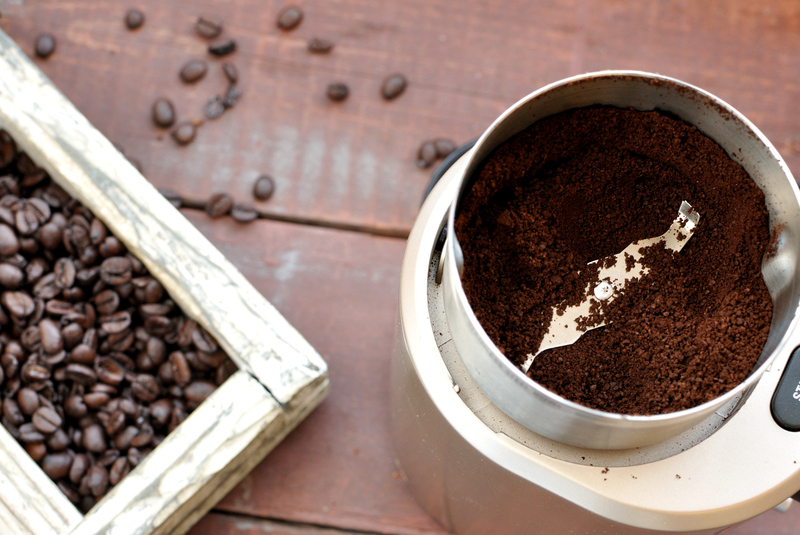Jewellery Cleaning Made Simple and Effective
Posted on 30/09/2025
Jewellery Cleaning Made Simple and Effective: The Ultimate Guide
Jewellery has the unique ability to transform an outfit, convey emotion, and celebrate milestones. But as time passes, even the most dazzling pieces lose their luster to everyday wear, oils, grime, and environmental exposure. The good news? Cleaning jewellery is neither expensive nor complicated. In this comprehensive guide, we'll reveal how jewellery cleaning can be simple and effective, giving your treasures a radiant new lease on life.
Why Regular Jewellery Cleaning Matters
Keeping your jewellery clean is about much more than sparkle. Here's why a good jewellery cleaning routine is important:
- Preserves Brilliance: Regular cleaning ensures that diamonds and gemstones retain their original brilliance.
- Prevents Damage: Dirt and oils can weaken settings, making loss or breakage more likely.
- Keeps Skin Healthy: Grime on jewellery often harbors bacteria, which can irritate your skin.
- Maintains Value: Well-maintained jewellery lasts longer and maintains its value for generations.

Understanding Different Jewellery Types and Materials
Before diving into effective cleaning techniques, it's important to recognize that not all jewellery is created equal. Diamonds, gold, silver, platinum, pearls, and gemstones each have unique care requirements to preserve their beauty.
Common Jewellery Materials
- Gold: Resistant to tarnish but susceptible to scratching and bending.
- Silver: Prone to tarnish; requires gentle cleaning and polishing.
- Platinum: Durable but can scratch and develop a patina over time.
- Gemstones: Each stone is unique--some are soft, some are porous, others are heat sensitive.
- Pearls: Highly delicate and require special handling.
Understanding your piece is critical to simple and effective jewellery cleaning. When in doubt, consult a professional for advice.
Quick Overview: Simple At-Home Jewellery Cleaning Methods
The secret to jewellery cleaning that's simple? Proven, gentle methods. Here's what works for most pieces:
- Mild Dish Soap and Warm Water: Ideal for diamonds, gold, and most gemstones.
- Specialised Silver Polishing Cloths: Perfect for restoring tarnished silver pieces.
- Ammonia Solutions: Use with caution on sturdy diamonds and gold, but avoid on pearls and porous stones.
- Commercial Cleaners: Suitable if labeled safe for your jewellery type.
- Ultrasonic Cleaners: Useful for certain hard stones, but avoid for delicate gems or antique settings.
DIY Jewellery Cleaning: Step-by-Step Methods
Let's take a closer look at the best methods for cleaning your jewellery effectively at home.
Cleaning Gold Jewellery
- Mix a few drops of mild dish soap with lukewarm water in a bowl.
- Soak your gold necklace, ring, or bracelet for 10-20 minutes to loosen grime.
- Using a soft-bristle toothbrush, gently scrub crevices and settings.
- Rinse with clean lukewarm water to remove soap residue.
- Pat dry thoroughly with a lint-free cloth.
Pro Tip: Avoid using toothpaste or baking soda--they're too abrasive for gold.
Cleaning Silver Jewellery
- Polishing Cloth: For light tarnish, a special silver polishing cloth usually works wonders.
- Home Tarnish Removal: Line a bowl with aluminum foil, add hot water and a tablespoon each of salt and baking soda. Place the jewellery on the foil--sulfur in the tarnish transfers, brightening the silver.
- Rinse thoroughly and dry with a microfiber cloth.
Pro Tip: Frequent polishing prevents tarnish build-up. Always store silver in anti-tarnish pouches.
Cleaning Diamond and Gemstone Jewellery
- Use the warm water and mild dish soap method.
- Toothpick or cotton swab can get into hard-to-reach areas behind stones.
- Ultra-sonic cleaners may speed things up, but always double check if your stones are suitable--pearls, opals, and emeralds are too fragile.
Diamonds love to sparkle but lose brilliance when coated in oils and lotions. Frequent gentle cleaning restores the brilliance without fuss!
How to Clean Pearl Jewellery Safely
- Wipe pearls with a soft, damp cloth after every wear--no soaking!
- If necessary, use a tiny bit of mild soap on the cloth (never the pearls directly).
- Ensure pearls are completely dry before storing them.
Pearls are porous and very delicate--avoid harsh cleaners, chemicals, and soaking altogether. Protect the silk thread by laying necklaces flat to dry.
Professional Jewellery Cleaning: When Is It Necessary?
While at-home jewellery cleaning is easy and cost-effective for most pieces, certain situations require expert attention:
- Antique or Heirloom Jewellery: Older items may have fragile settings and should always be cleaned professionally.
- Fragile Gemstones: Opals, emeralds, turquoise, and pearls need extra care beyond a DIY approach.
- Regular Professional Polish: Once or twice a year, a jeweller's ultrasonic cleaner or steam cleaning can restore professional sparkle.
- Loose Stones or Damaged Settings: If you notice any movement or damage, stop cleaning and see a professional immediately.
How to Choose a Jewellery Cleaning Service
- Look for jewellers with positive reviews and comprehensive services.
- Verify their expertise in cleaning your specific jewellery type and material.
- Discuss cleaning methods--ensure they offer non-abrasive, safe processes.
Jewellery Cleaning Mistakes to Avoid
To keep your treasures safe and gleaming, avoid these common jewellery cleaning pitfalls:
- Using Harsh Chemicals: Bleach, acetone, and other household cleaners can permanently damage gems and metals.
- Abrasive Materials: Avoid hard-bristled brushes, paper towels, or gritty pastes that scratch surfaces.
- Ignoring Damage: Cleaning an already weakened or damaged item may make matters worse.
- Inadequate Rinsing: Residue from soaps and cleaning agents can attract dirt and cause irritation.
- Excessive Ultrasonic Cleaning: Overuse can loosen stones and damage settings, especially for antique or delicate items.
Tips for Preventing Tarnish and Dullness
- Store carefully: Use anti-tarnish pouches, separate compartments, or soft cloth bags for delicate pieces.
- Avoid contact with lotions, perfumes, and hairsprays: These can coat jewellery and attract dirt.
- Remove before physical activities: Take off rings, bracelets, and necklaces before swimming, exercising, or cleaning.
- Check regularly: Examine your jewellery for loose stones or bent settings, and address issues promptly.
How Often Should You Clean Your Jewellery?
Frequency depends on how often you wear your pieces:
- Daily-Wear Items (e.g., wedding rings, bracelets): Quick clean once a week; deep clean every month.
- Occasional-Wear Pieces: Clean every few months or before placing them in storage.
- Pearls and Soft Gems: Wipe after every wear; deep clean only as needed.
Developing a jewellery cleaning routine extends the life and beauty of your cherished items, keeping them sparkling for years.
Best Jewellery Cleaning Products and Tools
With so many products on the market, which ones are truly safe and effective for simple home jewellery cleaning?
Recommended Tools
- Soft-bristle toothbrush: Perfect for cleaning settings and hard-to-reach areas.
- Microfiber and polishing cloths: Essential for drying and shining your jewellery without scratching.
- Non-abrasive dish soap: Gentle enough for frequent use on gold and gemstones.
- Commercial dips: Only use products specifically made for your jewellery's metal and stones.
- Ultrasonic cleaner: Effective for diamonds and precious metals, but check manufacturer recommendations first.
Products to Avoid
Never use bleach, ammonia (except very diluted and only for diamonds/gold), toothpaste, or rough pads--these can ruin both metal and stones quickly.

Jewellery Cleaning Myths Busted!
Many so-called "jewellery cleaning hacks" can be harmful. Let's separate fact from fiction:
- Myth: Toothpaste is safe for all jewellery.
Reality: Toothpaste is highly abrasive and can scratch metals and stones. - Myth: Soaking pearls brings back their shine.
Reality: Moisture weakens their natural nacre and the silk thread holding them together. - Myth: All gemstones can be cleaned with alcohol.
Reality: Porous stones and organic gems (turquoise, opals, pearls) should never be exposed to alcohol.
Summary: Jewellery Cleaning Can Be Simple and Effective!
- Identify your jewellery's material and choose a cleaning method accordingly.
- Use gentle products--like mild soap, polishing cloths, and lukewarm water--for most simple cleaning needs.
- Avoid harsh chemicals and abrasive tools to protect your treasures.
- Store jewellery properly, avoid unnecessary exposure to chemical agents, and inspect regularly for wear or damage.
- Seek professional help for antiques, fragile stones, or valuable heirlooms.
With a smart routine, you'll find that jewellery cleaning is simple, effective, and rewarding--restoring the radiance of your favourite accessories with minimal effort!
Ready to see your jewellery shine? Follow these simple tips and let your collection sparkle!
Latest Posts
Jewellery Cleaning Made Simple and Effective
How to Make Your Car Look Showroom-Ready
Unlock the Secrets to a Habitual and Effective Cleaning Routine
Small Wardrobe Transformation: Ideas for Better Organization



